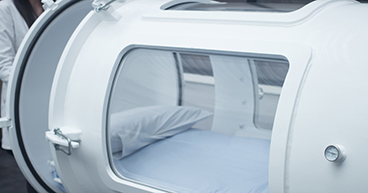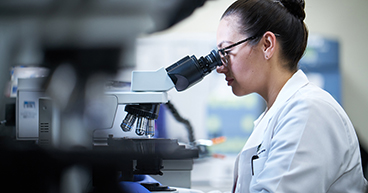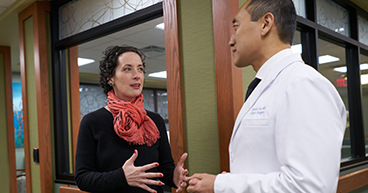


194 Posts

June 26, 2018
Busting myths: Can hyperbaric oxygen treat cancer?There have been decades of research into whether oxygen is good for cancer or bad for it. Some have used the unknowns to fuel claims that hyperbaric oxygen therapy can cure cancer.

June 21, 2018
Back pain, itchy skin and night sweats: They're more common than cancer patients may thinkUnlike fatigue, nausea, neuropathy and other well-known physical challenges that typically come with fighting cancer, some common conditions don't get as much public attention.

June 20, 2018
Dangerous drug interactions: Common medicines to avoid while undergoing oral chemotherapyCancer patients on certain oral chemotherapy drugs should be cautious about what other medications they’re taking. Learn which common medications to avoid during treatment.

June 12, 2018
Using viruses to attack cancer may help stimulate the immune systemNew studies are finding a surprising potential ally in the fight against cancer: certain deadly viruses.

May 31, 2018
10 commonly asked questions about life after breast reconstruction surgeryNo matter how prepared you are for breast reconstruction surgery, you will still have questions for your doctor in the days that follow, and you should make sure to ask them before ever leaving the hospital, experts say.

May 15, 2018
Eat this, not that by cancer type: How your cancer may determine your dietLearn what foods to eat, and what to limit or avoid, based on the type of cancer you have.

May 8, 2018
Study: Dr. Google a key consultant for majority of cancer patientsSurvey finds that majority of cancer patients of all generations increasingly rely on the internet to gather information after a cancer diagnosis.

May 4, 2018
The barrier that protects the brain makes it harder to treat this essential organTo protect the brain, the body has developed a series of defenses to keep it safe from harm—from both internal and external threats.

May 1, 2018
Hospitalists: A key link in a cancer patient's continuum of careFor cancer hospital inpatients, hospitalists often act as team leaders—collaborating with the members of the cancer patient’s care team to coordinate treatment plan details and therapies designed to manage side effects.
Guidelines
The information contained in this blog is not intended nor implied to be a substitute for professional medical advice. Always seek the advice of your physician or other qualified health provider prior to starting any new treatment or with any questions you may have regarding a medical condition. Nothing contained in the blog is intended to be used for medical diagnosis or treatment of any illness, condition or disease.